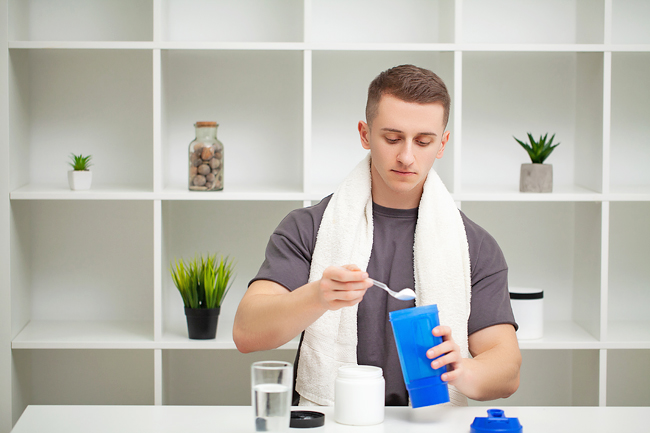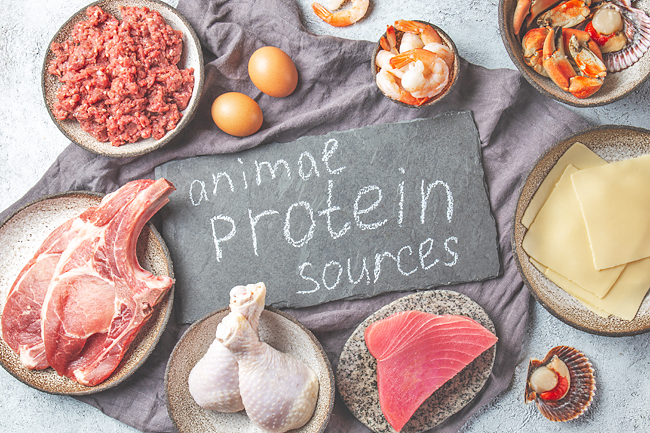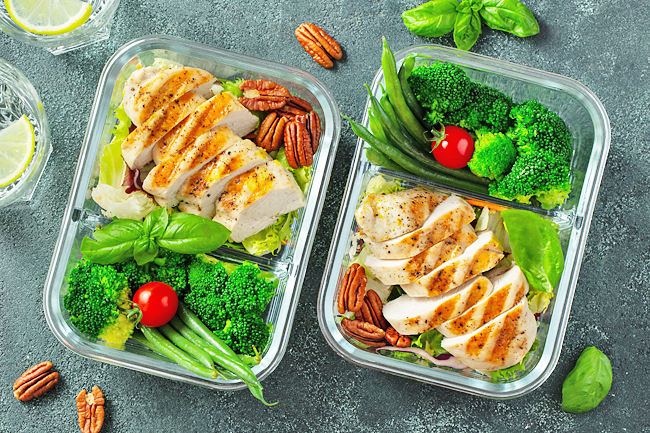Gretchen Reynolds
THE WASHINGTON POST – Protein is the macronutrient of the moment. On TikTok, videos with the hashtag #protein have been viewed more than 9.1 billion times, with influencers swearing the nutrient builds strong, bulging physiques, trims away body fat, and supercharges metabolisms.
The nearly ubiquitous social media message is, whoever we are, we need more protein. But the hype doesn’t match reality. Most of us are probably getting enough protein, although highly active people may need a little more.
“The devil is in the details,” said Stuart Phillips, a professor of kinesiology at McMaster University in Ontario, Canada, and an expert on protein, physical activity and health. Here are the things you really need to know about protein:
ACTIVE PEOPLE NEED MORE PROTEIN THAN COUCH POTATOES
If you’re sedentary, you officially need about 0.8 grammes (g) per kilogramme (kg) of body weight, according to the recommended daily allowance set by the government’s Food and Nutrition Board. This translates to somewhere between 45g to 60g of daily protein for most people who rarely exercise – or approximately two chicken breasts (about 30g of protein each) or about 40g can of tuna and a quarter-cup of almonds (about 8g).
But this amount is almost certainly too low for many of us. The recommendation “for protein might be enough to keep us alive, but it is too low for physically active people”, said Eric Rawson, a professor of nutrition and exercise at Messiah University in Mechanicsburg, United States (US).



For active people, a better recommendation would be “1g to 1.2g per kg” of body weight each day, Phillips said, or higher, “up to a level of 1.6g per kg” of body weight daily if you’re physically active.
In simple terms, if you weigh 72.5kg, then 1g per kg of your weight is 72.5g of daily protein, which you could get by eating, over the course of your day, about 42g of steak, a cup of Greek yogurt (about 17g) and a half-cup of tofu (about 20g).
Some researchers advocate for more, though, especially for athletes in the middle of heavy training, when their muscles are under constant strain. For them, the “optimal” amount of protein may be as high as 2.2g per kg of body weight every day or approximately a gramme of protein for every pound of body weight, said Shawn Arent, the chairman of the department of exercise science at the University of South Carolina and a long-time sports nutrition researcher.
YOU CAN OVERDO THE PROTEIN THING
Our muscles can only take in and use so much of this stuff.
“I don’t see data to suggest that our bodies can use protein beyond about 0.4g to 0.5g of protein per kg” of body weight at a single meal, Phillips said, which, for most of us, would equate to a large chicken breast.
Swallow more protein than that and the excess is stored as fat, used as metabolic fuel or transformed into urea, which is protein stripped of its nitrogen and excreted through the kidneys.
Extra-large portions of protein, in other words, produce expensive pee.
Thankfully, they won’t damage your kidneys, unless you already have kidney disease. That widespread belief is a myth, Phillips said.
But perhaps the most important thing to know about protein is that you’re probably getting enough.
“Most Americans are eating close to 1g to 1.2g per kg of their body weight” in protein most days, said Nicholas Burd, the director of the Nutrition and Exercise Performance Research Group at the University of Illinois Urbana-Champaign, which seems to be close to the nutritional sweet spot for most of us, assuming we’re active but not Olympians.
YOU DON’T NEED THAT WHEY SHAKE
Still concerned about getting enough protein? Supplements, like shakes and bars “are convenient”, Phillips said. But so is a hard-boiled egg, which contains about 6g of protein, or a chicken breast. “I eat a lot of Greek yoghurt and chicken,” he said.
There’s little evidence that certain proteins are more nutritious than others, although some people swear by whey powder. Derived from milk, whey is a good source of leucine, an amino acid that helps jump-start muscle building. “But so is Greek-style yoghurt,” Phillips said, or salmon, which is packed with leucine.
“Whey protein has falsely been put on a pedestal as superior due to aggressive sports marketing campaigns,” Burd said.
Most people, including athletes, can get sufficient protein without needing powdered whey, even if they don’t eat meat.
“Vegetarian and vegan athletes can easily meet protein needs on a plant-based diet,” said Enette Larson-Meyer, the director of the Nutrition and Exercise Metabolism Laboratory at Virginia Tech and co-author of Plant-Based Sports Nutrition.
Plant proteins may not be complete, she said, meaning they don’t contain all the amino acids we need, but “consuming a combination of different plant-based protein sources, such as beans and grain, will provide a balanced protein profile”. If your diet is plant forward, but not fully vegetarian, add an egg or some cheese to improve a mostly vegetarian dish’s “amino-acid profile”, she said.
EXTRA PROTEIN PROBABLY WON’T HELP YOU LOSE WEIGHT
Because protein fills you up, it helps you eat less, and your body has to work harder to break it down. As a result, you expend more calories digesting protein compared to carbs or fatty foods.
But the actual amount of that extra calorie burn “is tiny”, Phillips said, and unlikely to have a meaningful effect on body weight.
In effect, despite many social media claims to the contrary, mainlining protein won’t incinerate body fat. To drop pounds, you must consume fewer calories, from any nutrients, than you burn.
But protein does play a role in keeping you healthy during weight loss, Arent said. It helps your body hang onto muscle tissue while you shed fat.
“Muscle is your health currency,” he said. “Don’t lose it!”
PROTEIN AFTER A WORKOUT AND BEFORE BED MAY HAVE BENEFITS
“I’m an advocate of spreading protein throug-hout the day, especially making sure you consume enough at breakfast,” Burd said.
Protein is the most satiating of macronutrients, he pointed out, taking longer to digest than carbohydrates or fat, its fellow macronutrients, and leaving you feeling fuller. So, having protein at every meal helps control appetite and ensures a steady supply of amino acids for working muscles.
“Protein is a good foundation to each feeding,” Arent said.
Some people advocate eating protein after a workout and right before bed.
Protein after a hard workout, for instance, in conjunction with carbohydrates, might replenish lost fuel stores and speed recovery better than carbohydrates alone, Arent said, although that idea is controversial. “But the reality is that there is no upside to not having protein after a workout,” Arent said.
Likewise, a small portion of pre-bedtime protein, such as yoghurt or a handful of nuts, has been shown in some studies to amplify muscle building overnight.
“Nighttime protein ingestion is an excellent opportunity to increase muscle protein synthesis,” Rawson said, but the process “doesn’t have to be complicated”. If you have dinner at 6pm, “add a Greek yoghurt at 9pm,” he said.





